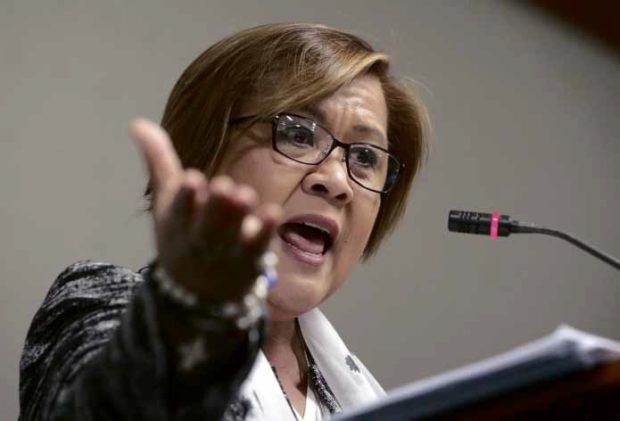Party-list Law reforms pushed to nix mockery, abuse of system
MANILA, Philippines – The party-list system is in need of reforms to ensure that only the marginalized sectors of society are genuinely represented and not the “interest of moneyed politicians and businesses,” detained opposition Senator Leila de Lima said Monday.
In a dispatch from Camp Crame, De Lima said she would be filing a bill amending Republic Act No. 7941, also known as the Party-list Law, to “clarify the ambiguities conveniently used and circumvented by politicians with vested interests to make a mockery of the system and vault themselves to power.”
“Prostituting the partylist system can no longer be allowed to persist… It is high time we emphasize that the partylist system of representation is, more than titles and seats, a social justice tool that ought to give more law to those who have less in life,” the lawmaker stressed.
De Lima said her measure would clearly define the term “bona fide member” of a party to ensure those who genuinely belong to the marginalized sectors would act as their representatives.
“This bill further gives the power to the party rather than the nominee by giving the party the opportunity to replace their representative during their term,” added De Lima.
To “prevent political dynasties from bastardizing the system,” De Lima said the measure also seeks to prohibit any person from being nominated as a party-list representative if he or she is related by affinity or consanguinity within the third degree to incumbent elected officials.
The deliberations of the framers of the 1987 Constitution indicated that the party-list system was conceived to “democratize political power by encouraging the growth of a multi-party system,” De Lima argued.
Citing the case of Bayan Muna vs. Comelec, the senator pointed out that former Chief Justice Artemio Panganiban underscored the importance of the party-list system in empowering the masses to directly participate in legislation that would benefit them.
Panganiban, however, also warned that the organizations could be infiltrated by those who do not genuinely represent the causes and plight of the marginalized and underrepresented, according to De Lima.
At present, “seats constitutionally reserved for the marginalized were quickly warmed by the bottoms of the greedy,” De Lima stressed, referring to the entry of prominent political and business names as party-list representatives.
Based on the summary of Statements of Assets, Liabilities, and Net Worth (SALNs) of House members as of December 2018, port tycoon and 1-Pacman (Patriotic Coalition of Marginalized Nationals) Rep. Michael Romero remained the wealthiest lawmaker in the chamber with a declared net worth of P7.858 billion.
READ: 2 billionaires in House in 2018; Port tycoon Romero still richest
Meanwhile, in just one year, seven House members have more than doubled their wealth with a party-list lawmaker topping the list and declaring P254.3 million net worth, representing a surge of 406.3 percent. /gsg
READ: 7 House members richer by more than 100% in a span of one year
